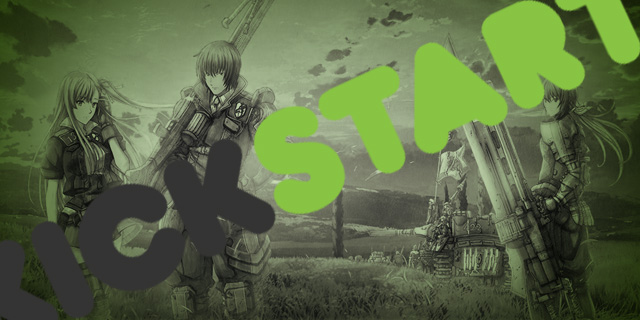
Okay, publishers. You have fans. (Congratulations on that, by the way!) You’re in the game business, and that’s because you like games. You also genuinely want to make your fans happy. But you’re a business, and sometimes it’s just not feasible to localize games for the West. Your fans want them anyway, and they’ll keep pestering you until the end of time about them. You know the ones. Sega, you have Valkyria Chronicles 3, among others. Namco Bandai, you have a smattering of Tales titles. Nintendo, you… well, you have a pile of ’em: Xenoblade, The Last Story, Pandora’s Tower and, of course, Mother 3. Every publisher has a game like this that the most rabid followers just won’t shut up about.
We get it, though: you’ve done the math, and you just don’t think it would be profitable. The system’s declining. Previous games didn’t sell so well. Whatever the reasoning, you’ve figured it out. You’re never going to get past it with that answer, though. So give fans a shot to prove you wrong.

By now, most of us are familiar with how Kickstarter works: you put a money goal out there, let people pledge money and, only if the goal is met, everyone gets charged and the project goes forward. Now we aren’t saying you have to use their system. It’s entirely possible you can set something up that doesn’t charge you a percentage of the money. The point is this: you know how much you need to make to cover your costs, so set that as the goal. (Or something a bit higher, even. But keep it reasonable.)
Keep a lower tier for donations that is simply a game pre-order, because you’ll get a lot of money if you do. But have higher levels for fans that really want to invest in making the localization happen, and do so NPR-style. Give extra small rewards: a poster for an extra $25, or a shirt for an extra $50. You don’t have to worry about putting much into these bonuses, as they’re almost purely badges of honor for those going the extra mile to help. Add in a few ultra-tier rewards, too. Special Thanks credits do the trick, as do other ideas that cost you almost nothing but make people feel special.
Try to keep this goal number low, if you can. Sure, cover all your development costs, but if it’s cheaper to do a digital-only release, do it. Don’t spend on marketing, because this idea sells itself. Would voice acting run up the bill? Go with subtitles only. It’s important to keep the goal as attainable as possible. Why? Because we know you still think there’s a good chance of failure. That’s okay, though, because failure is good for you too.

Why? You gave the fans a chance. And that’s the point: by allowing an opportunity to let people get their dream project made, you’re the good guys. Capcom, know how your Mega Man followers lashed back after the Mega Man Legends 3 cancellation? Mostly, it was because they felt they weren’t given a fair shake. Had they known that forum activity was the metric on which they’d be judged, they said, they would have participated more. Is that true? We don’t know, but that’s irrelevant. Giving fans a money goal? That’s a clear objective, and if they don’t reach it, it’s on them. You just wanted to help! And you won’t hear from them about that game so much after that, because you proved you were right in deciding it wasn’t viable. What’s more, it makes a great case for your judgment later when you can’t localize something else.
Of course, it could succeed. Your fans could rally around you and your games, making this undertaking possible and, of course, making you a bit of money to go along with the big pile of goodwill. Our experience this summer with Operation Rainfall shows us that the player base is willing and able to work together for a cause. Instead of getting lobbed at from outside, though, you’d be carrying the standard, blazing a trail for the people who love you for doing what you do.
And even if it fails, they’ll remember that you were with them.



















